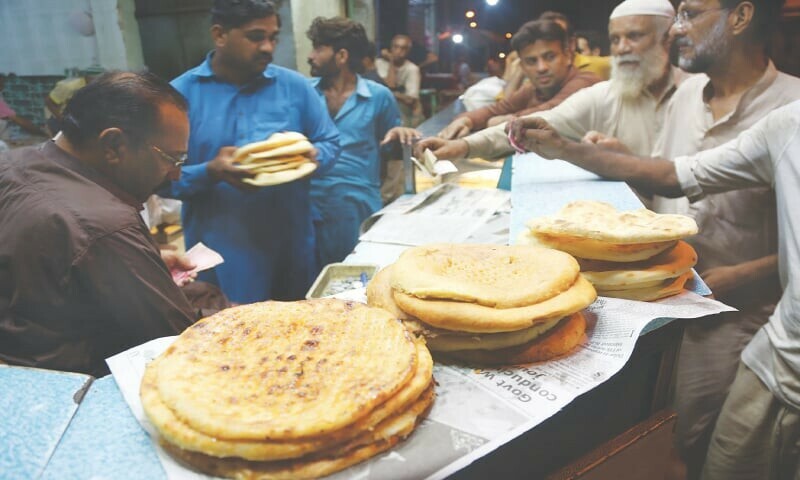Roti Price
Punjab Chief Minister Maryam Nawaz recently announced a significant reduction in the price of roti, setting it at a new fixed rate of Rs14 in several areas, including Lahore. This move aims to alleviate the financial burden on the population, especially the poor, who have struggled with rising food costs.
Nawaz shared this update via her official Twitter account, emphasizing the Punjab government’s commitment to making basic necessities more affordable.
In her tweet, Maryam Nawaz highlighted that the decision to reduce the price of roti was a response to the adverse effects of previous economic policies.
She criticized the former Pakistan Tehreek-e-Insaf (PTI) government, blaming its decisions for driving up the cost of essential commodities, thereby making roti unaffordable for many.
“The wrong decisions of the PTI government had put roti out of the reach of the poor,” she stated, underscoring the current administration’s efforts to correct these economic missteps.
The price adjustment has been implemented across various regions in Punjab. In Lahore, the new fixed price of roti is Rs14, a reduction aimed at providing immediate relief to the city’s residents.
Meanwhile, in Bahawalpur and Bahawalnagar, the price has been set even lower, at Rs12 per roti. This differential pricing strategy takes into account the varying economic conditions and cost of living in different parts of the province, ensuring that the reduction benefits a broader section of the population.
The decision to lower the price of roti is part of a larger initiative by the Punjab government to address food security and inflation. By making staple foods more affordable, the government aims to improve the quality of life for its citizens and reduce the economic strain on lower-income households.
This policy is particularly significant in light of the recent economic challenges faced by the country, where inflation has severely impacted the cost of everyday essentials.
Maryam Nawaz’s announcement has been met with a positive response from the public, who view it as a necessary and timely intervention. The reduction in roti prices is expected to have a ripple effect on the local economy, potentially lowering the prices of other food items as well.
It also serves as a political statement, differentiating the current administration’s approach to economic management from that of its predecessors.
In conclusion, the Punjab government, under the leadership of Maryam Nawaz, has taken a decisive step to reduce the price of roti, fixing it at Rs14 in Lahore and Rs12 in other cities like Bahawalpur and Bahawalnagar.
This move not only addresses the immediate need to make basic food affordable but also reflects a broader commitment to rectifying the economic policies that have disproportionately affected the poor. By prioritizing the welfare of its citizens, the Punjab government aims to foster a more equitable and sustainable economic environment.
I am a dynamic professional, specializing in Peace and Conflict Studies, Conflict Management and Resolution, and International Relations. My expertise is particularly focused on South Asian Conflicts and the intricacies of the Indian Ocean and Asia Pacific Politics. With my skills as a Content Writer, I serve as a bridge between academia and the public, translating complex global issues into accessible narratives. My passion for fostering understanding and cooperation on the national and international stage drives me to make meaningful contributions to peace and global discourse.










